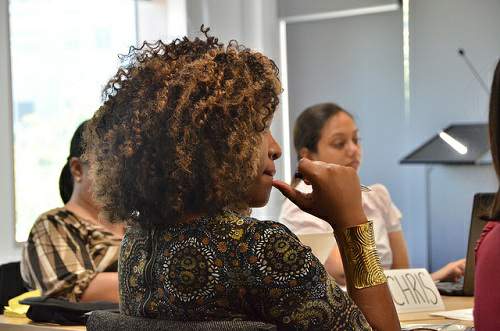
Adoption of the Political Declaration on Prevention and Control of Non-communicable Diseases in 2011 represented landmark acknowledgement of non-communicable diseases (NCDs) as a major challenge for development in the 21st Century. Nearly three years later, outcomes of a recent United Nations review highlight the critical need to match ongoing global political commitment with strengthened capacity, including legal capacity, in accelerating a ‘whole-of-government’ and ‘whole-of-society’ response.
As the second high level meeting of the UN General Assembly dedicated to NCDs, July’s comprehensive review provided opportunity to evaluate progress, identify gaps in action, build consensus on scale up, and transform evolving global commitments into action at the national level where progress has been recognised as ‘insufficient and highly uneven’.
Among the review Outcomes, Member States reiterated commitment to reduce NCD risk factors and create health-promoting environments, including through the use of effective regulation. Member States also reaffirmed commitment to implement relevant international agreements and strategies, and agreed to build on guidance provided by the menu of cost-effective policy options contained in the World Health Organization’s (WHO) Global Action Plan.
Legislative and regulatory options in a tobacco context include smoke-free environments, comprehensive bans on advertising, promotion and sponsorship, increased excise taxes, effective health warnings, and plain/standardised packaging of tobacco products. Regulatory interventions, including restrictions on availability, taxes, and labelling requirements, are also proposed for reducing the harmful use of alcohol and promoting healthy diets. Despite their evidentiary basis, affordability, and population-wide effects, regulatory and legislative measures remain underutilised in many countries.
While national level progress has been insufficient,
‘I see no lack of commitment. I see lack of capacity to act, particularly in the developing world’, recognised WHO Director-General Margaret Chan, in her opening address. The need for strengthened capacity cannot be limited to the health sector, who Chan acknowledged bears the brunt of these diseases, but has very little control over their causes:
‘We can treat the diseases, but we cannot re-engineer social environments to promote healthy lifestyles’.
Against this backdrop, increasing knowledge and effective use of law is an essential component of accelerating the global NCD response. Strong legal capacity is critical to an effective NCD workforce, and the value of lawyers extends well beyond their role in drafting NCD risk factor regulation. Efforts to prevent NCDs present a potential threat to commercial interests of powerful industries, meaning measures adopted by governments may face legal challenge under both national and international law. However, lawyers should not only be further called upon when a legal challenge is threatened or initiated. Legal expertise can be usefully engaged at all stages of policy research, development, implementation and evaluation. Engagement of legal capacity both throughout the policy process and across sectors involved – for example, not only those representing health but also trade and finance - can foster coordination and develop legislative support across government, helpful not only in generating the political will for action, but also critical in the event measures do end up requiring defence before a court or tribunal.
As the review outcomes recognise, development of this capacity within national institutions will be aided by strengthened international cooperation. In a legal and regulatory context this includes exchanging best practice, not only through shared examples of domestic regulation, but by building knowledge of how effective regulation of tobacco, alcohol and unhealthy foods can be achieved within the context of international legal frameworks, including those of international health law, international trade and investment law, international human rights law, and international intellectual property law.
Perhaps more so than any other global health priority, NCDs cannot be solved through the health sector alone. Member States agreed to enhance the capacity, mechanisms and mandates of relevant authorities to ensure action across all government sectors. Strengthening the capacity of Ministries of Health to exercise strategic leadership is recognised as crucial, exercised together with a coordinating role in policy development, engaging stakeholders across government, non-government organisations, civil society and the private sector as appropriate. To this end, Member States also agreed to develop, strengthen and implement multisectoral policies and plans, to facilitate engagement, policy coherence, and mutual accountability in promoting a ‘whole of government’ and ‘whole of society’ response.
Looking to the future, the review Outcomes provides steps towards a further high level meeting in 2018, ensuring NCDs will continue to be recognised at the highest political level. This continued momentum and attention of the international community through the UN and WHO context offers valuable opportunity for Member States to work together in developing the necessary capacity, including legal capacity, required to accelerate the global NCD response.
Further reading: